One of six percent: Domani Sharkey earns full-ride to Caltech
Sharkey gained admission to Caltech through QuestBridge’s NCM, providing her with full coverage of tuition and fees for four years of attendance.
Senior Domani Sharkey slowly moved her mouse to hover over the status update button. She held her breath and clicked. “Congratulations, you matched! You have been selected for admission to the California Institute of Technology.”
In two quick sentences of her acceptance letter, Sharkey learned that she had earned attendance at the California Institute of Technology (Caltech), which has a 6% acceptance rate, on a full-ride scholarship.
Sharkey’s journey to gaining admission began when she opened up an application under QuestBridge, a national nonprofit scholarship application aimed to aid high-achieving, low-income students gain admission to one of the 42 top universities it has partnerships with, including Stanford, Yale, Massachusetts Institute of Technology (MIT), Brown and Caltech.
Through the QuestBridge National College Match (NCM), applicants can move forward as a finalist, after which point they have the opportunity to match — be chosen to attend a college for four years free of tuition, room and board and other fees — with up to 12 universities that the student ranks. Through the ranking system, QuestBridge sends the finalist’s application to each of the ranked schools; however, as the match is binding, a student can only match with one school and will therefore match with the highest school on their list should multiple schools select them.
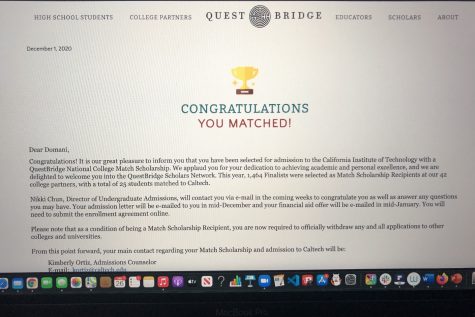
Sharkey explained how she felt when she first found out about her matching.
“I mostly felt dizzy and in shock. It was so unreal that I didn’t really know how to react, and it took me like three days just to process it,” Sharkey said.
As less than half of the finalists will match to a school, Sharkey expected to move forward into the QuestBridge Regular Decision process which provides the chance to apply to any of the partner schools for free and with financial aid covering a large portion of tuition upon admission. For this reason, Sharkey had submitted applications to other schools prior to finding out about the match.
“I genuinely didn’t think I would match, it seemed so improbable. I had just submitted applications to six other schools a few days before I found out,” Sharkey said.
While the NCM itself is highly competitive, the competition steepens even further when looking at the separate schools. For reference, in a previous year, MIT, which is viewed by many as Caltech’s rival school, matched with 29 applicants — five were matched with Caltech.
To increase her chances of matching with a school, Sharkey chose to rank three other universities, explaining that Caltech was not even her first choice.
“I ranked four schools in total, the others being MIT, Princeton and Columbia, but those three all rejected me for the match. Caltech was actually last on my list because even though California has always been my dream location, I was apprehensive about moving two thousand miles away right out of high school,” Sharkey said.
Though her last choice among her rankings, matching at all was a moment in which Sharkey felt that all of her hard work throughout high school had paid off, changing her mindset for the better.
“Matching does make it feel like all the effort was worth it because I was eventually able to change my mindset and find my own balance between working hard and doing things that I enjoy. If I’d continued believing that my value depended on how college-appealing I was and continued being as severely unhealthy as I was sophomore year to get this scholarship, then I doubt my answer would be the same,” Sharkey said.
Still, the journey through the years leading up to her match was a difficult one. While her struggles eventually led her to an epoch of growth, Sharkey elaborated on the academic pressures she placed on herself and the tolls they took on her emotional and physical health.
“I was, and still am, continuously sleep deprived … Sophomore year was particularly difficult. I remember I packed way too much into my schedule and was averaging one to two hours of sleep a night and I was constantly jacked up on caffeine,” Sharkey said.
Sharkey continued, stating, “At the end of every day, I was utterly exhausted, mentally and physically, and always on the verge of either a breakdown or an existential crisis or both. I just had to force myself to work through the apathy and fatigue.”
Sharkey explained that, before she was able to grow as a student, she first hit a large period of burn-out.
“I got so caught up in trying to mold myself into a flawless candidate for college that for a time I lost sight of the entire point [of] education. But I eventually got past that, and right now, I don’t really regret the onerous times because I know that I had to learn those lessons at some point — that’s just the nature of growth,” Sharkey said.
Sharkey’s mother Tamara Daniels emphasized on how, even as a child, Sharkey had an affinity for learning and a drive to know more.
“I have always had faith and believed that God would make this opportunity tangible for her … She was always studious, ever since she was a toddler. Instead of waking up to play or coming out of her room, we would find her awake and sitting in her bed reading a book,” Daniels said.
As she grew up, Sharkey maintained the same studious drive. In the classroom, Sharkey stood out as a student whose curiosity could not be contained. Physics teacher Marybeth Senser spoke on the complex nature of Sharkey’s contributions in class.
“Domani is a very thoughtful, curious and respectful young woman. The type of questions she asked and feedback she gave set her apart as an exceptional student. Her questions revealed that she was always thinking deeply about the material we were learning, checking her own understanding and eager to expand her knowledge further,” Senser said.
Senser continued, stating, “Sometimes she came up with such insightful, unique questions that I didn’t even know the answer — I had to go look it up and come back to her.”
To her peers and friends though, an even more notable attribute lies in her empathy and willingness to assist others. Senior Rainu George explained the lengths that Sharkey would go to lend a helping hand to others.
“People go to her for help all the time because she explains things differently and takes the time to help others. I remember in Physics last year where we approached her for help and she would stand by a white board drawing out and explaining the problems … She’ll stay up all night helping you with whatever, sometimes putting aside her own work,” George said.
Senser noticed the same inclination to aid peers in the classroom.
“Domani regularly helped other students with their studies both during and outside of class time. She is as good at listening and valuing others’ ideas as she is at explaining and supporting her own — a rare and valuable combination. She not only excelled in her own studies, but also improved the learning of those around her,” Senser said.
For Daniels, the conglomerate of Sharkey’s attributes makes it both clear and not surprising that Sharkey was able to achieve such an accomplishment.
“I expected this from Domani because my little lady has done the work … In her 17 years, Domani has always been intelligent, independent, proactive, resilient, proud, resourceful, witty, diligent, artistic and more. I definitely think those attributes will contribute to her success at Caltech and beyond,” Daniels said.
Moving forward, Sharkey plans to major in astrophysics or math and potentially minor in English. Sharkey details some of the aspects at Caltech that she looks forward to.
“I’m really excited for the observatory; I’ve never looked through a telescope before, but I’ve always wanted to. And I heard that there are libraries inside each of the [residence halls], which is like a literal dream,” Sharkey said.
Sharkey continued, stating, “I’m also looking forward to the math classes because I read that they’re very theory-based, and you get to take the same steps that old mathematicians took when developing fundamental theorems that we today typically take for granted — it’ll be really interesting to explore math on that intricate a level.”
Moving into the future, Sharkey plans to carry the same academic independence she had throughout high school into Caltech, a hallmark attribute of success, as Daniels voiced.
“She took care of everything she needed to do on her own in applying for college. She had a little guidance but Domani owned every step of the way,” Daniels said.


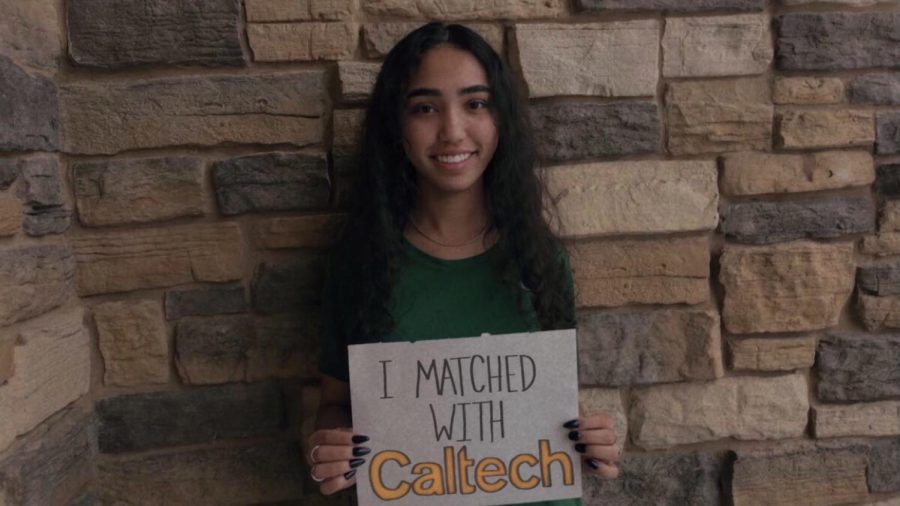
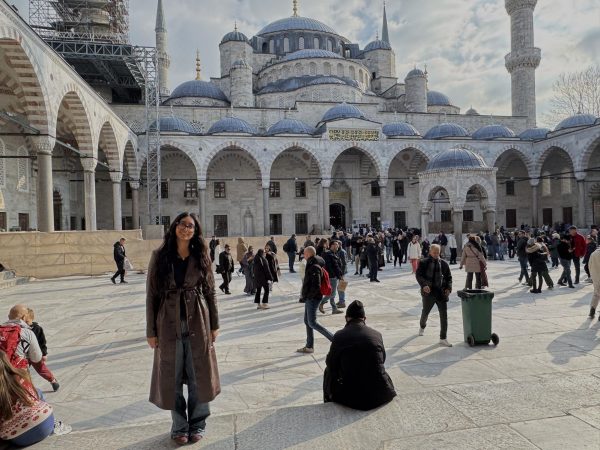
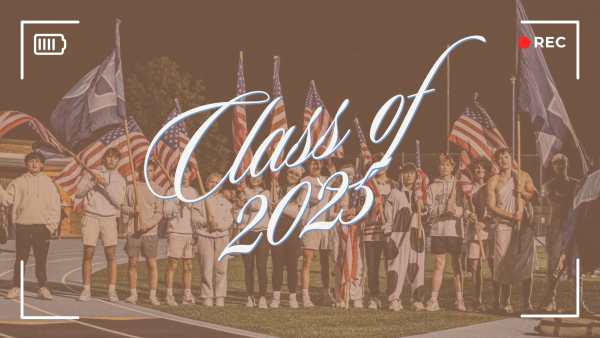
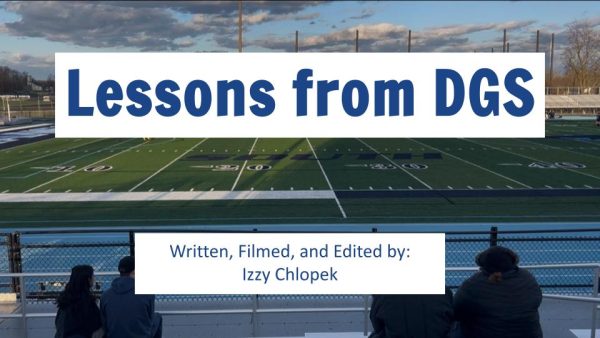

![In this documentary, you will learn how violins are made. All music is in the public domain:
Music Produced by Deutsche Grammophon, Medici TV, Heifetz Institute, and Queen Elisabeth competition
Paganini, Caprice No. 24 [Song recorded by Jasha Heifetz]. Heifetz Institute. (Original work published 1817)
Paganini, Caprice No. 24 [Song recorded by Jasha Heifetz]. Heifetz Institute. (Original work published 1817)
Bartok, Sonata No.1 for Solo Violin [Song recorded by Kevin Zhu]. Queen Elizabeth Competition. (Original work published 1944)
Paganini, Violin Concerto no. 1 [Song recorded by Philippe Hirshhorn]. Queen Elizabeth Competition. (Original work published 1819-1825)](https://southblueprint.com/wp-content/uploads/2025/05/Screenshot-2025-05-07-122429-600x334.png)

